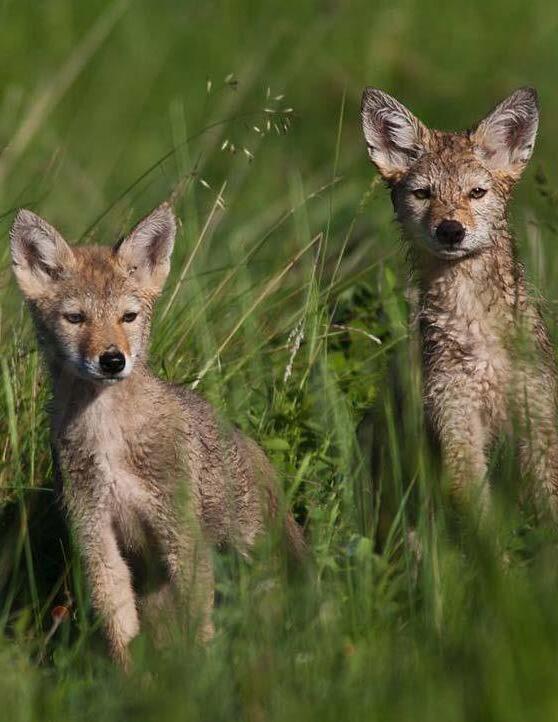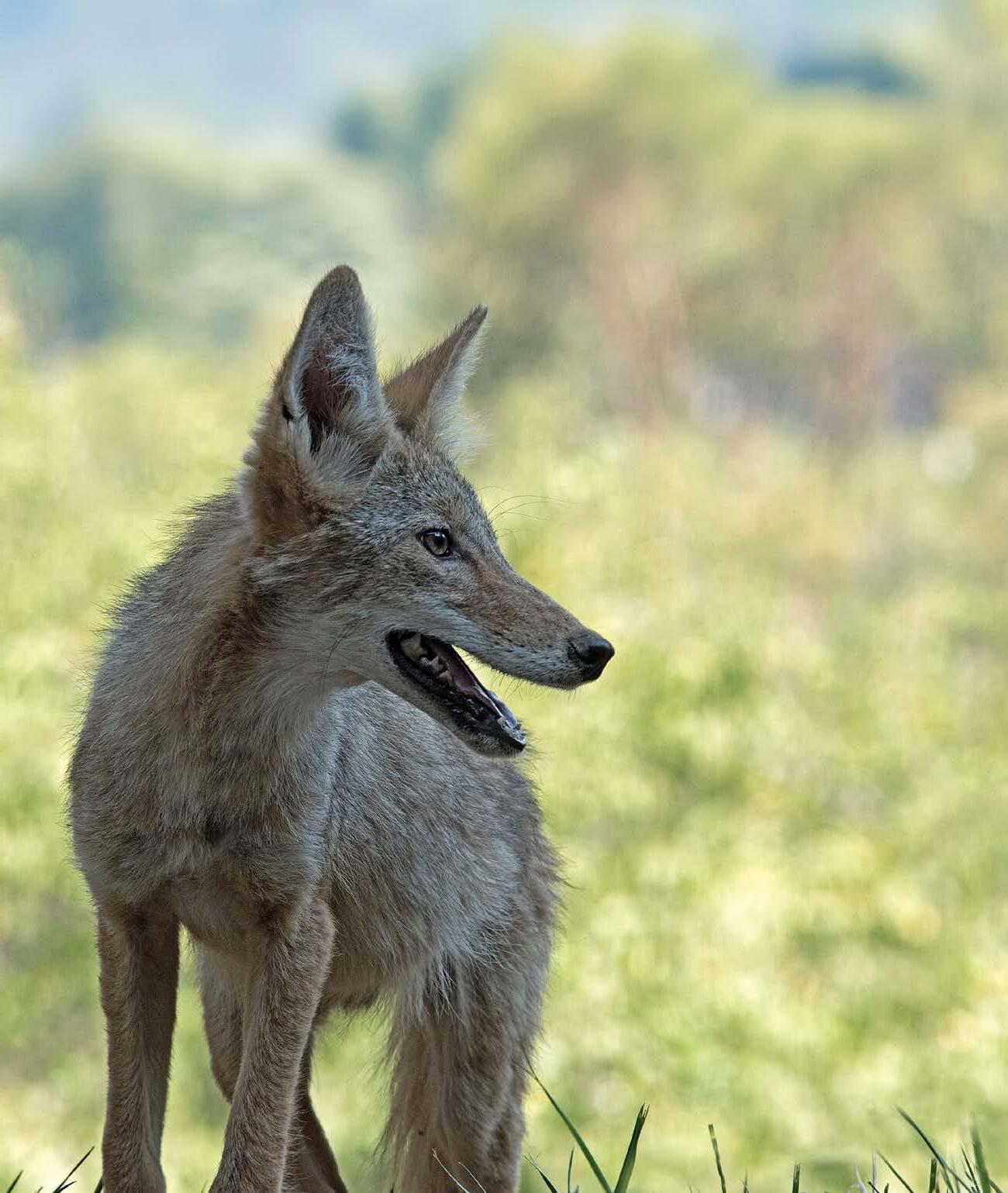




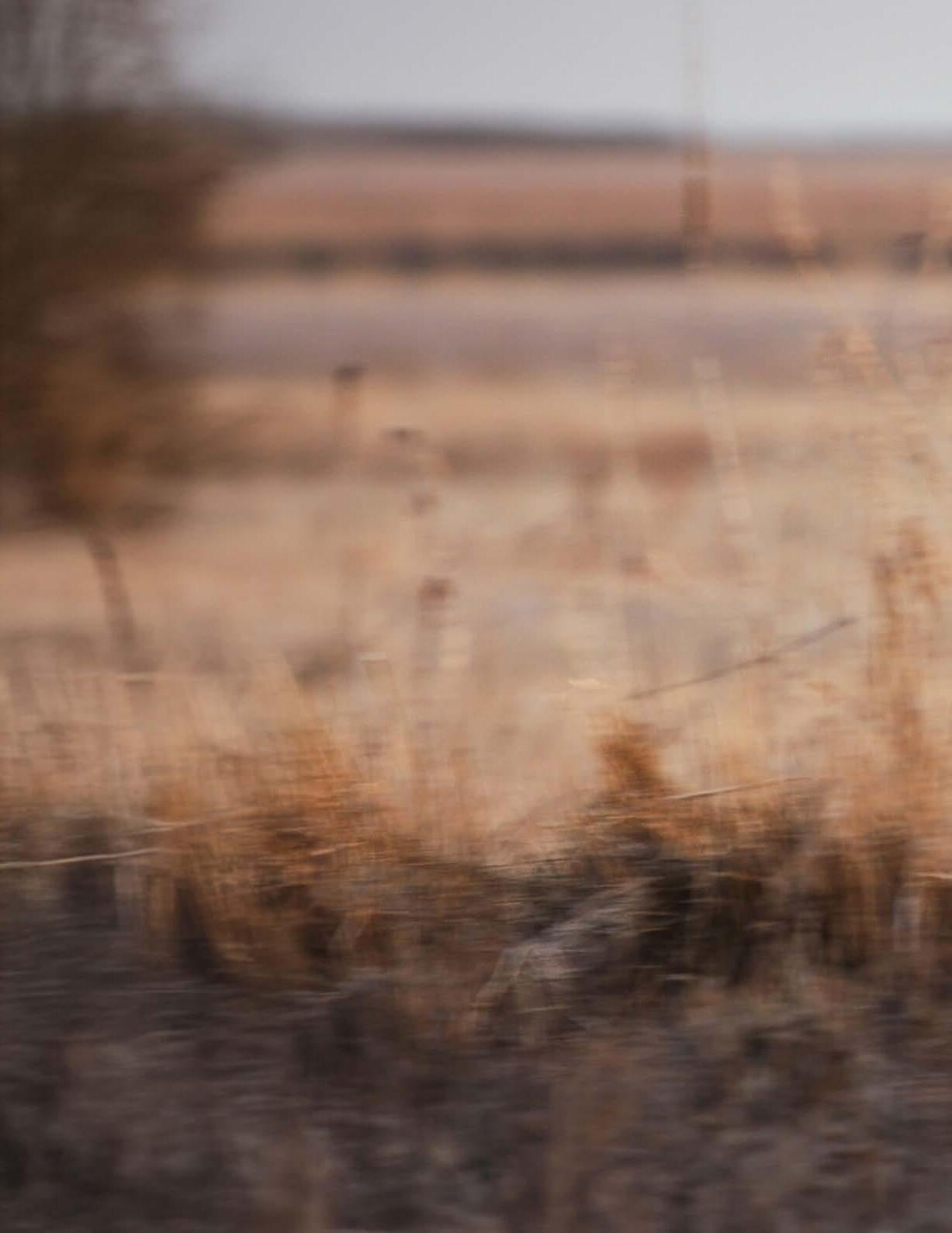
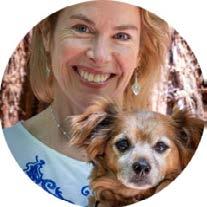
As we celebrate Project Coyote’s 16th Anniversary this year, I am filled with immense gratitude for how far we have come in our shared mission to promote compassionate conservation and coexistence between people and wild carnivores.
To ensure our mission is sustained for years to come, we recently announced the launch of The Coyote Collective, our new monthly giving community. By joining The Coyote Collective, you become a vital part of our ongoing efforts to safeguard North America’s wildlife from persecution. Your consistent support enables us to plan and execute long-term strategies to protect coyotes, wolves, bobcats, mountain lions and other wild carnivores.
In the wake of the Wyoming wolf torture incident, we are advocating stronger than ever to secure federal protections for wolves and to promote sciencebased management practices that ensure their survival. We are also expanding our education and outreach programs, and advocating for policies that create a culture of coexistence where wild carnivores are respected as vital members of our ecological community.
In line with our commitment to expand and strengthen our grassroots network, we are thrilled to welcome Karin Saucedo as our new Texas State Coordinator. Our state representatives play a crucial role in advocating for wildlife-friendly policies, educating communities about humane coexistence, and mobilizing support at the local level. We’re also excited to welcome author, nature advocate, and rewilding facilitator Vanessa Chakour into our pack as our newest Ambassador. Her talent for communicating on behalf of our wild kin and passion for helping us expand our Artists for Wild Nature program is so appreciated.
Finally, it is with a heavy heart that we pay tribute to the passing of Marty Griffin, a true conservation legend, a dear friend, and an Ambassador for Project Coyote. Marty’s unwavering dedication to environmental protection and his profound impact on the conservation community will forever be remembered, and we are deeply grateful for his lifelong commitment to preserving the natural world.
Reflecting on the 16 year journey of Project Coyote, which began with a vision of a world where coyotes and other wild carnivores are valued and protected, I am inspired by our collective achievements and the passionate support from all of you.
With gratitude and determination,

Camilla Fox Founder & Executive Director
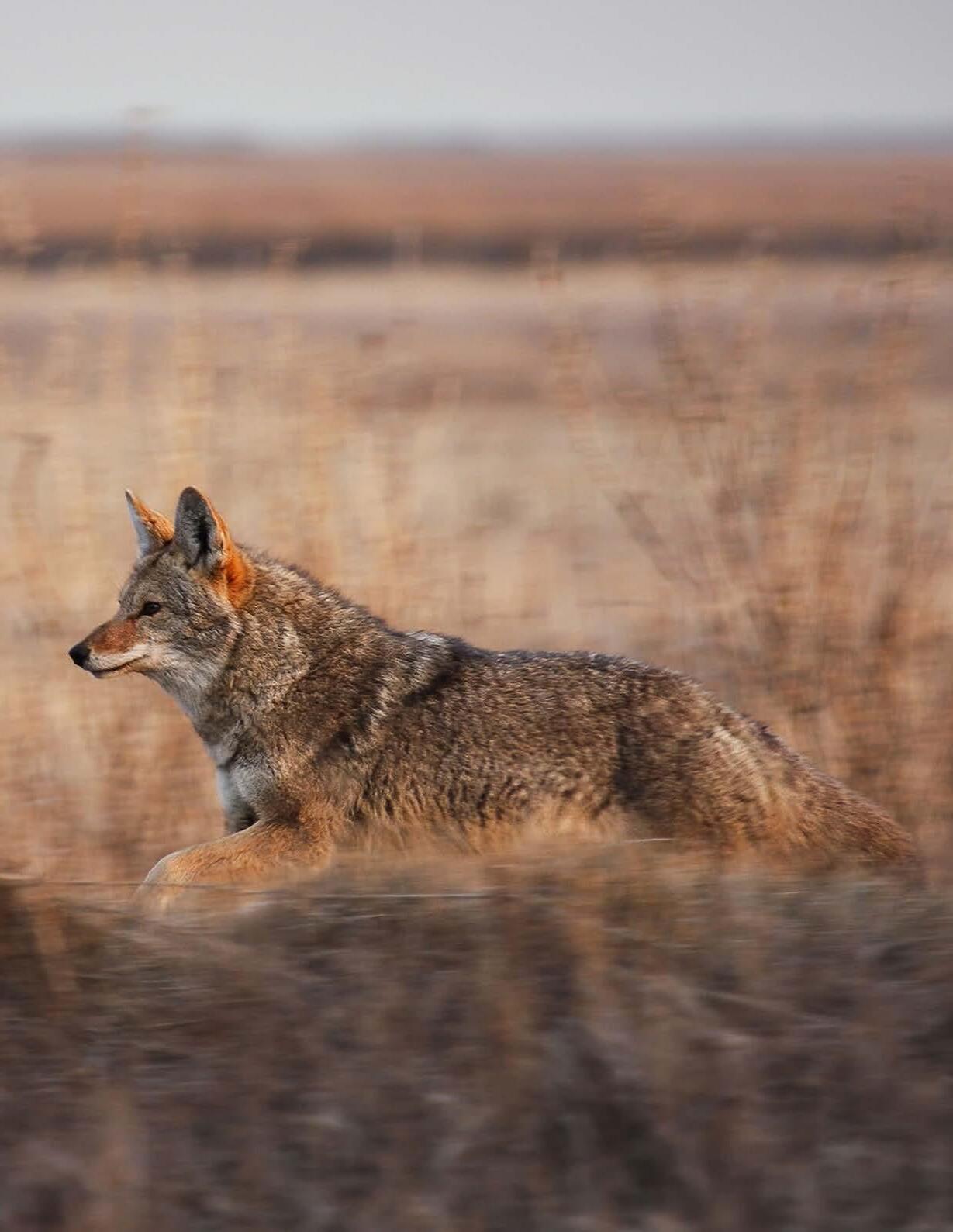
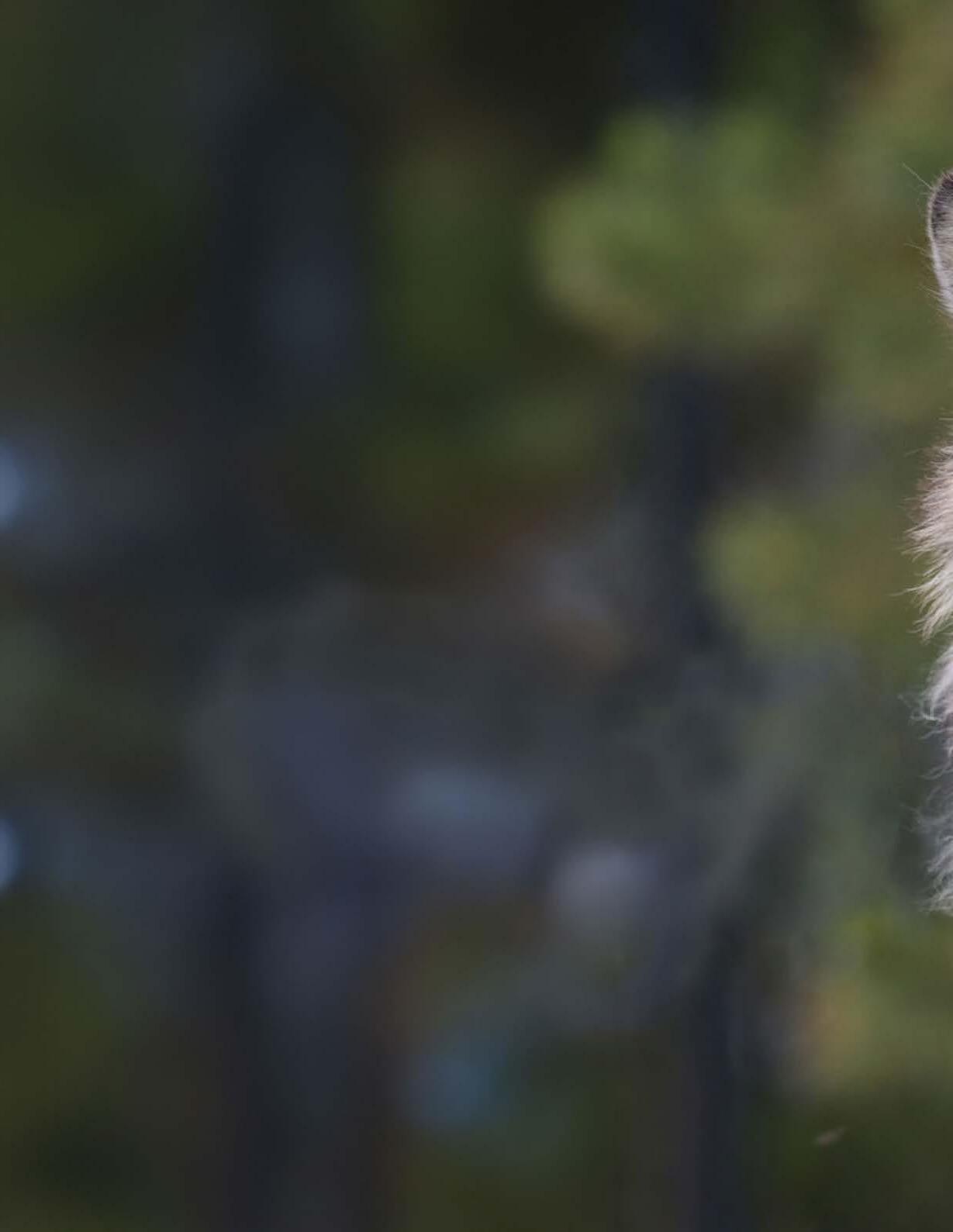
Project Coyote uniquely brings together renowned experts from diverse academic fields to advocate for a caring, responsible and modern approach to wild carnivore conservation and protection, multispecies coexistence, and biodiversity preservation. We aim to shift federal and state based wild carnivore policy away from current lethal management policies to a framework centered around human-wildlife coexistence, allowing for the flourishing of both humans and wild carnivores.
Following the horrific torture and senseless killing of a wolf in Daniel, Wyoming, which rightfully sparked national outrage, we organized our supporters to amplify their voices into collective action. Our hope is that through the united efforts of wolf advocates nationwide, this wolf may live on through calls for justice and inspire fundamental, systemic change for the protection of all wolves. We invite you to visit our Wyoming Wolf Action Hub, to take action in defense of wolves. In response to this incident, we also joined the Center for Biological Diversity and other groups in calling on the U.S. Forest Service and Bureau of Land Management to ban the use of snowmobiles or other vehicles to run down wolves and other wildlife. This practice is utterly barbaric, and banning it should be straightforward. However, both Wyoming and Montana had the opportunity to prohibit this practice in 2019 and FAILED to do so. While the majority of citizens agree that running over coyotes and wolves with snowmobiles is undeniably cruel and inhumane, this practice is legal in Wyoming and Idaho (wolves and coyotes), and Montana (just coyotes), where wildlife policy is stacked against wild carnivores.
Furthermore, on July 2, 2024, we filed a lawsuit in federal court challenging the U.S. Fish and Wildlife Service (USFWS) over their decision denying Endangered Species Act (ESA) protection for wolves in the Western U.S. The biggest and continuing threat facing the gray wolf is human-caused mortality. Since 2021, Rocky Mountain states of Montana, Idaho, and Wyoming, have liberalized the legal killing of wolves and removed discretion from their fish and wildlife agencies in favor of letting lawmakers use wolves as political pawns. Unlawful killings, including poaching and poisoning, are on the rise too.
The FWS released an initial 90-day finding in September 2021 that relisting the Western gray wolf as endangered “may be warranted.” The agency then inexplicably reversed course on February 7, 2024, when it found in its final decision on the petition that the Western gray wolf is not entitled to ESA protection. In the coming months, we will be defending wolves in court, and will keep you updated as our litigation progresses.
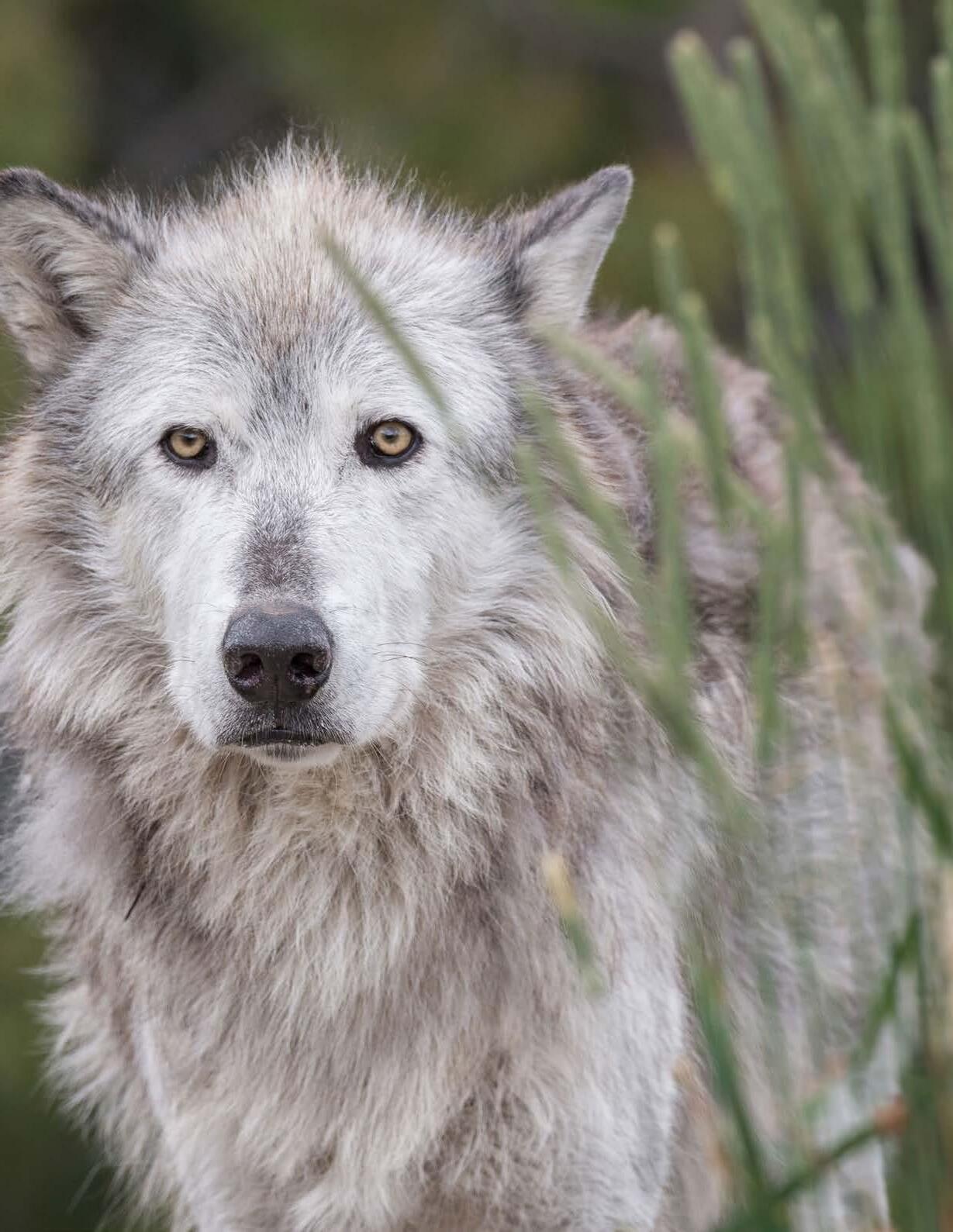
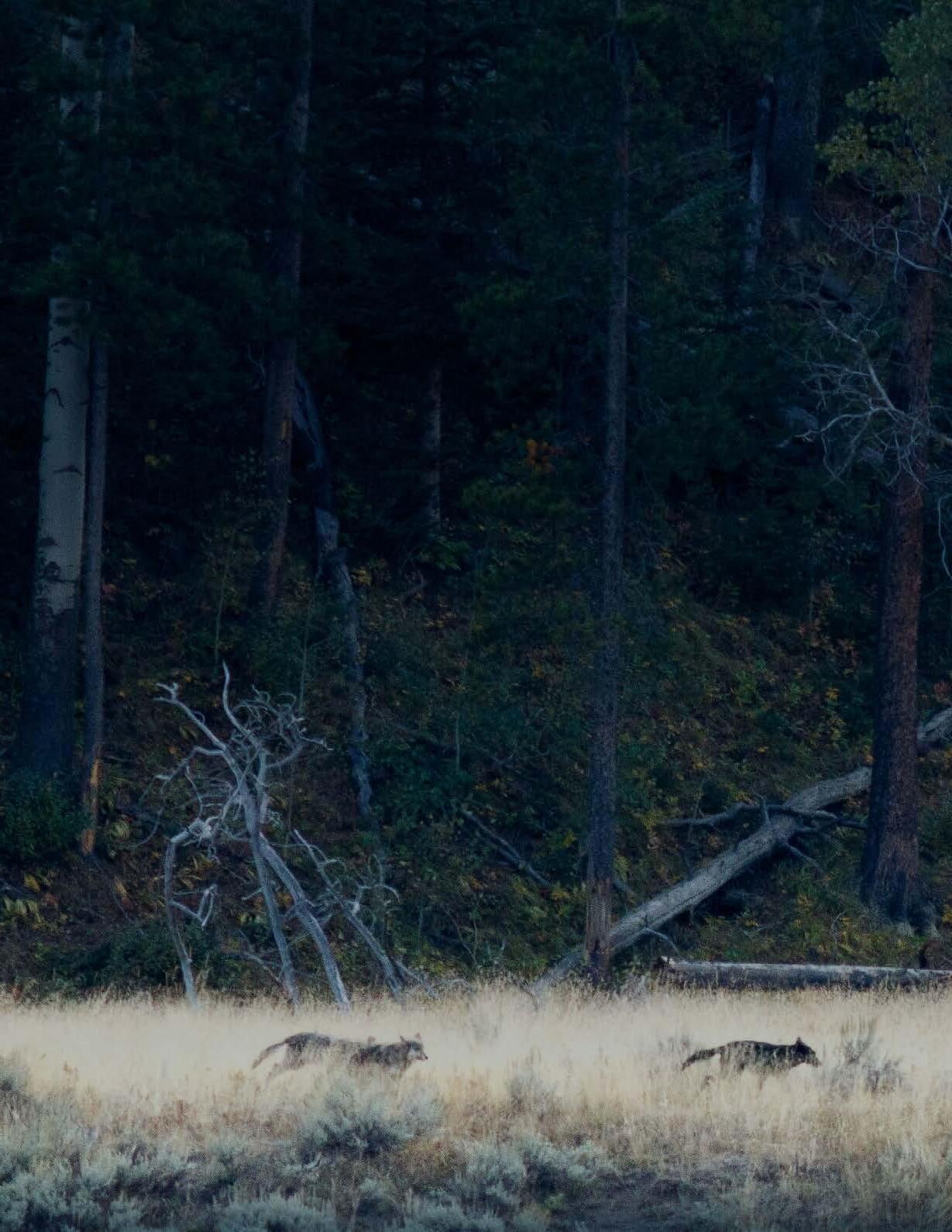
In May, Project Coyote was thrilled to support over a dozen members of the House of Representatives when they introduced the Prohibit Wildlife Killing Contests Act of 2024 , sponsored by Rep. Steve Cohen (D-TN). This act would prohibit wildlife killing contests on more than 500 million acres of U.S. public lands! According to Rep. Cohen, “America’s wildlife play a special role in the natural environment and in a healthy ecosystem. Killing apex predators and other targets for what some deem ‘sport’ is both cruel and unnecessary. These contests serve no legitimate wildlifemanagement purpose and ending them is the right thing to do.”
Since our inception, Project Coyote has remained steadfast in its commitment to exposing and ending wildlife killing contests nationwide. Last year, in collaboration with coalition allies, we achieved two significant victories in Oregon and New York , where statewide bans on killing contests were enacted. We also continue to push for more state bans, including in Illinois and New Jersey. The introduction of federal legislation is an important step in building on our efforts to permanently end killing contests from coast to coast. You can read more about the legislation in our press release, and join us in calling for an end to wildlife killing contests on federal public lands by signing our petition.
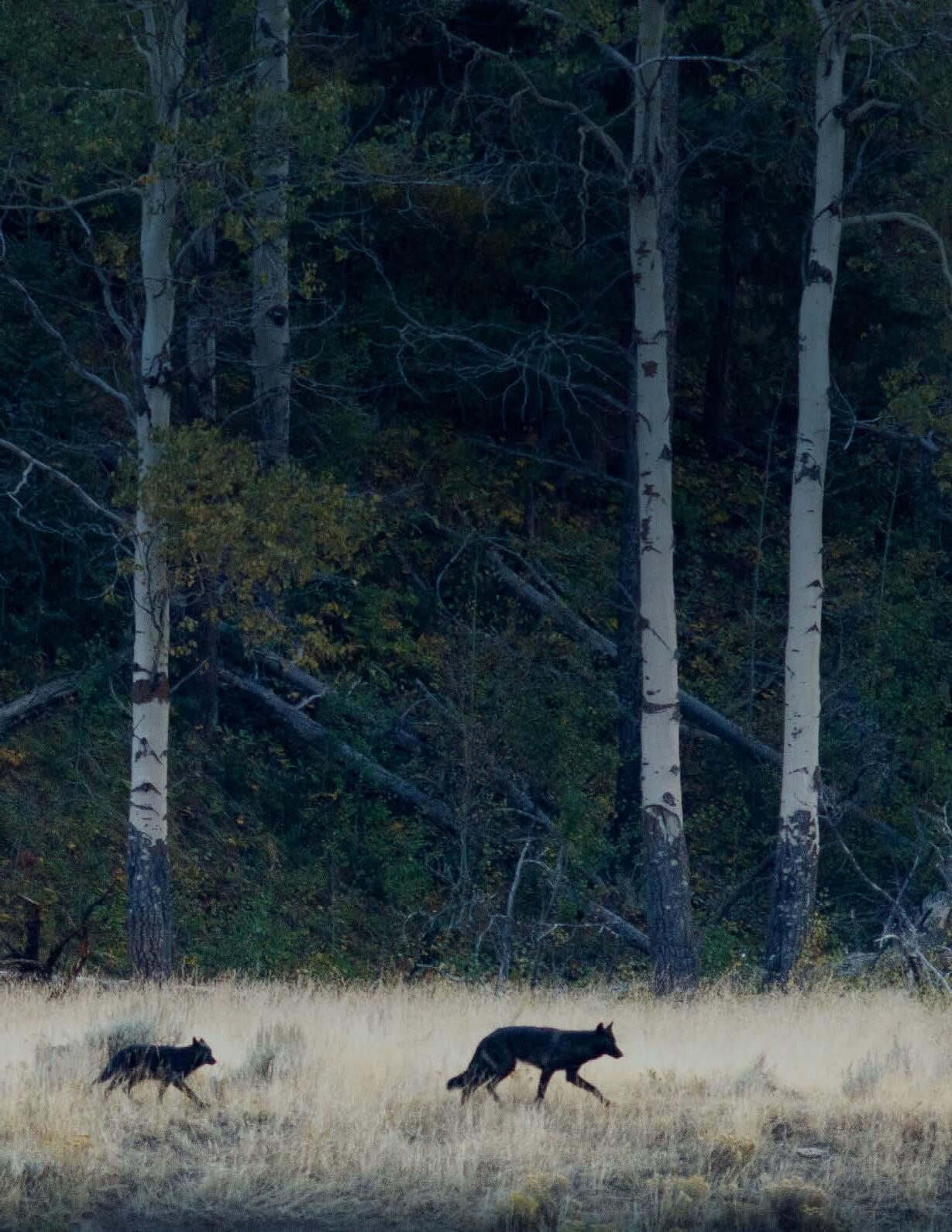
“America’s wildlife play a special role in the natural environment and in a healthy ecosystem. Killing apex predators and other targets for what some deem ‘sport’ is both cruel and unnecessary. These contests serve no legitimate wildlife-management purpose and ending them is the right thing to do.”
~Rep. Steve Cohen
For the past two years, Project Coyote has been heavily engaged in outreach in support of HB2900 (IL Rep. Anna Moeller), which would ban wildlife killing contests (WKCs) in Illinois. From hosting virtual and in-person presentations and screenings throughout the state, to educating legislators, our Illinois State Representative Jane McBride, contract lobbyist and other team members have been tenaciously working to end this barbaric practice. This past spring, we launched billboards along the Interstate 55 corridor (in Logan and Montgomery Counties) to amplify our efforts in raising awareness of wildlife killing contests occurring statewide. These efforts, alongside those of our coalition partners, have gotten us closer than ever to our goal.
On May 15, the Illinois House passed HB2900, which would prohibit WKCs statewide, by a 62-45 vote. The bill now heads to the Senate in the fall, during the lame duck session, where it is sponsored by state Sen. Sara Feigenholtz (D-District 6) and Sen. Julie A Morrison (D-District 29). The bill has yet to be assigned to a Senate committee, but we are already engaging with Senators to secure their support, and will continue to do so through the summer and fall. Stay tuned for campaign updates, upcoming actions and events as we continue to build support for this critical legislation.
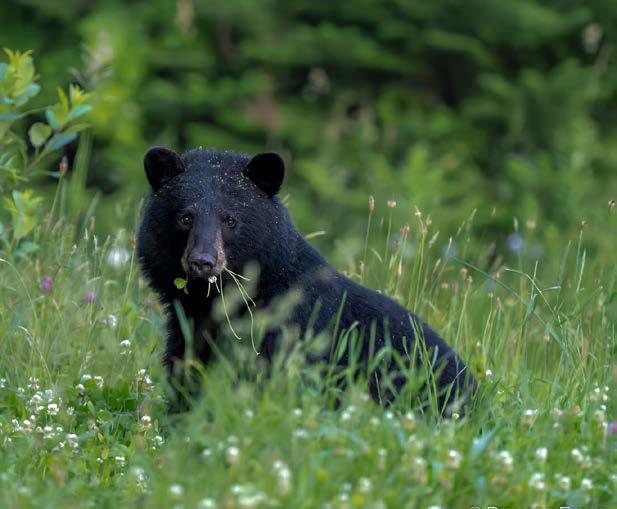
This Summer, a growing coalition of wildlife advocates in Vermont — including Project Coyote’s Vermont Representative, Sarah Gorsline — continue to push for wildlife policy changes and increased protections for wild carnivores. While the wildlife governance reform bill S.258 stalled in the Vermont legislature this spring, we’re hopeful that the strong testimony given by wildlife advocates before the Senate and House environment committees has leveraged an opening for future collaboration with Vermont Fish & Wildlife. S.258 led to discussions in the Vermont Legislature and Fish & Wildlife Department about diversifying wildlife policymakers, so we will continue to pursue inclusion of more science and ecology-trained Board members, and science-based, ethically-informed wildlife policy.
With the support of Project Coyote and other wildlife advocacy groups, S.301/Act 141 was signed into Vermont law on May 30th. The Act includes a new ban on the export of black bear organs and paws from Vermont. This law is critical, since Vermont was previously one of only 16 states in the U.S. that allow the sale of bear organs outside the state, or that have no regulations on the sale of bear parts. Bear gallbladders are often sold overseas for use in traditional medicines. States that allow bear organs to be sold can become bastions of both legal and illegal bear hunting activities. Vermont’s black bears need all the protections they can get, so we’re excited to celebrate this progress
Vermont Fish & Wildlife staff have indicated that both Project Coyote and the Northeast Wolf Recovery Alliance (of which we are a founding member org) will be included in surveys and discussions about Vermont’s 2025 Wildlife Action Plan, which will guide Vermont’s mammal policies for the next 10 years. We’re hopeful that increased protections for Eastern wolves and coyotes, as well as other species, will be included in the 2025 Wildlife Action Plan due to wildlife advocates’ ongoing participation in the process.
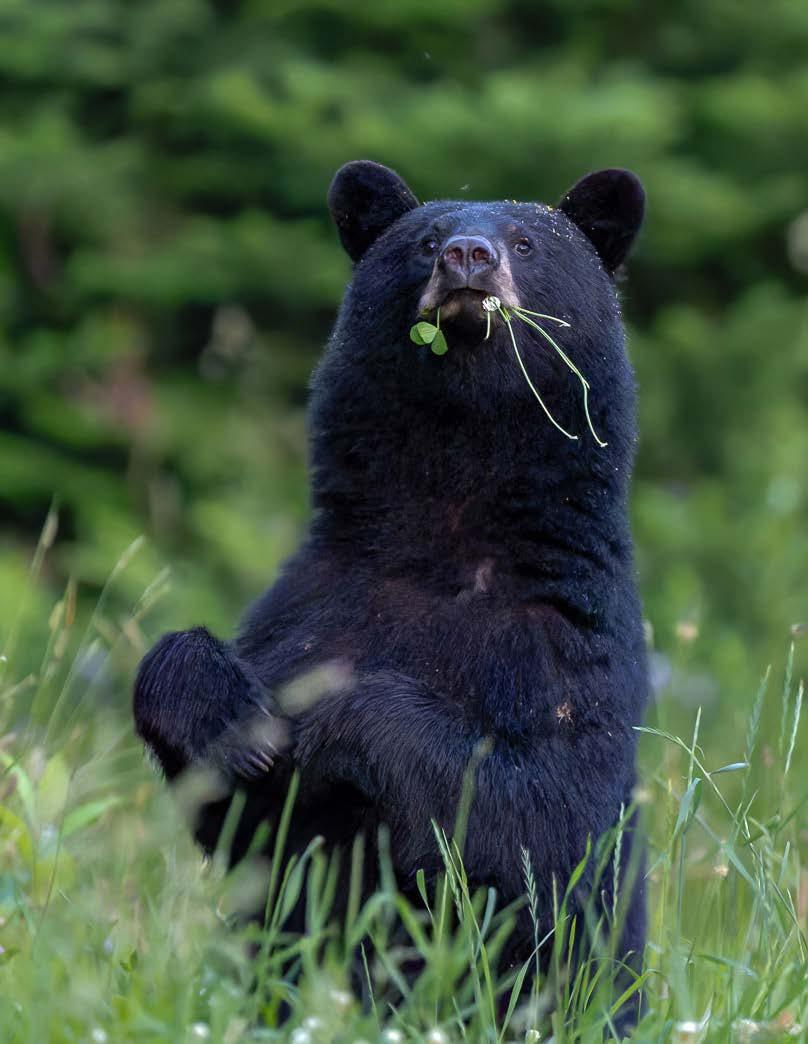
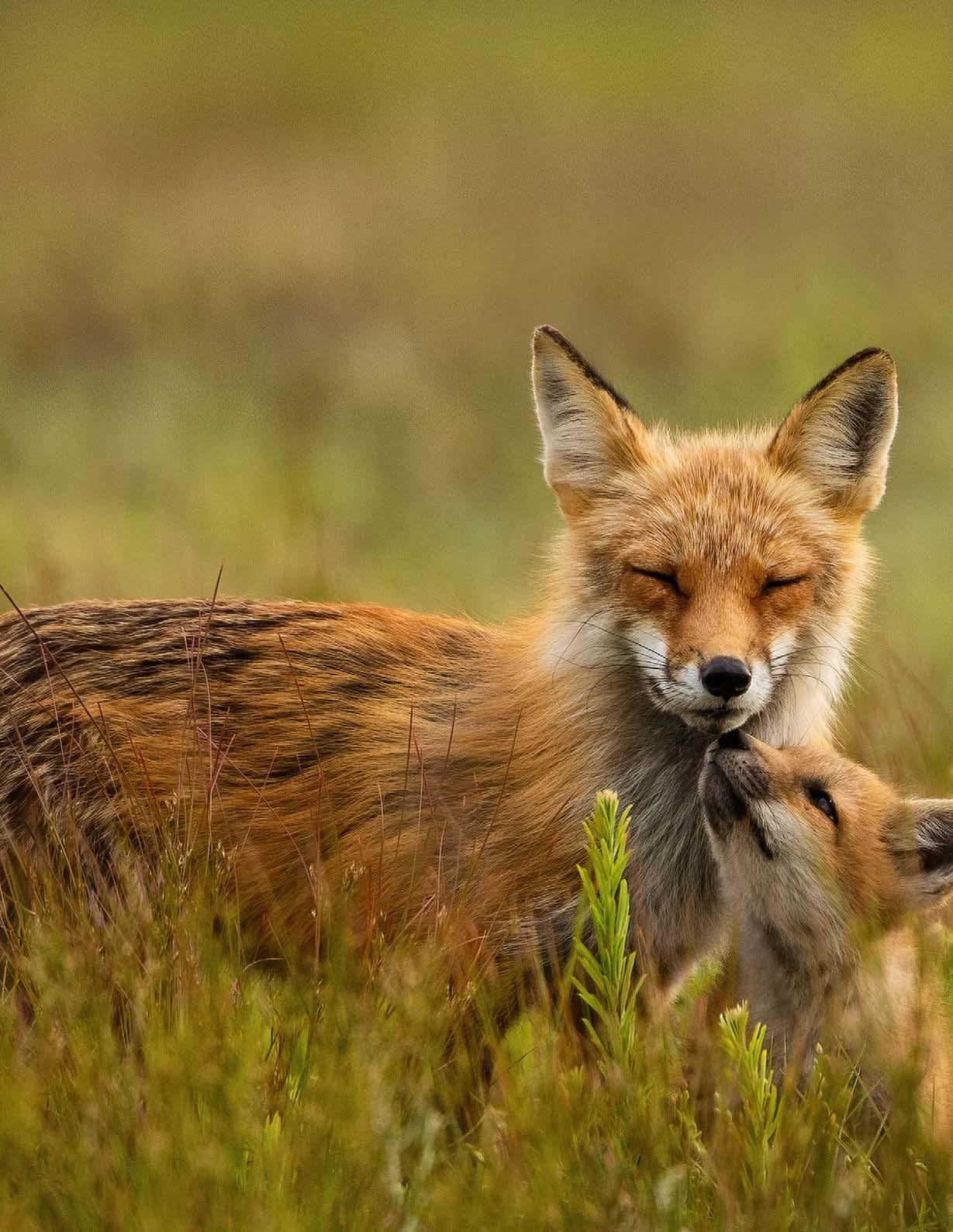
We partner with local stakeholders to implement nonlethal approaches to managing and preventing conflicts with wild carnivores, emphasizing coexistence through education, proactive public outreach, agency collaboration, and community empowerment.

Francisco Santiago-Ávila, Project Coyote Science & Ethics Manager, recently published a poignant Notes From The Field Blog arguing for an ethical overhaul of wildlife policy. Below is an excerpt of the blog; we encourage you to read it in its entirety on our website .
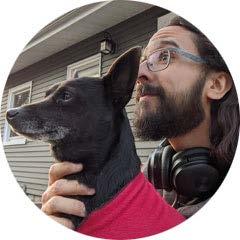
Persecution, torture and senseless death: the grim reality of being a wild carnivore in the US
By Fran Santiago-Ávila
In Wyoming, wolves and coyotes are classified as “predatory animals”, meaning they have no protections whatsoever against recreational persecution. In fact, reports on the practice of coyote ‘whacking’ (running down and over coyotes, the most common target, with snowmobiles — a practice currently legal in WY, MT and ID) show the practice has been common, known and accepted in Wyoming and elsewhere for years.
We join other advocacy groups in highlighting that the lack of policies and regulations addressing this type of behavior towards wild animals makes all decision-makers – legislators, governors, wildlife boards/commissions and agency staff, complicit in the pervasive abuse of many wild animals. We also believe it is critical to stress that this ethical relativism and the permissiveness of abusive behavior towards wild animals, and predatory animals especially, is pervasive throughout the US, as are the worldviews that underlie both the behavior and its allowance (even its promotion) by both state and federal agencies.
There are deep, institutionalized misunderstandings that prevent a transparent, inclusive conversation about our treatment of wild animals, and about what should be considered compassionate and fair in our relationships with them.
Such misunderstandings and worldviews preclude any increases in protections for wild animals.
Read the full blog
In the summer, we often see a spike in reports of people being followed by a coyote while walking along a path or sidewalk. While this behavior is often misinterpreted as “stalking” or “aggressive”, in reality that coyote is likely just trying to protect their offspring. In summertime, coyote parents are protective of their growing pups, and they will often “escort” humans away from their families by following them until they feel secure — especially if humans are accompanied by a dog, which coyotes may see as a threat to their young.
If a coyote follows you, be sure your dogs are leashed and calmly continue walking away. If you feel that the coyote approaches too closely, you may consider using humane hazing techniques
It’s also common to see larger groups of coyotes at this time of year. Coyote mothers typically have 3-7 pups, though the exact number is influenced by resource availability and competition. In response to population
drops and disrupted social systems due to intentional killing, including trapping, hunting, and killing contests, coyotes have a unique adaptation to produce larger litters—often with greater pup survival. Therefore, in areas that experience high amounts of indiscriminate killing, larger numbers of coyote pups may be born and survive to adulthood due to increased resources following brief population decline. However, the mortality rate of pups usually rests between 50 - 70% in their first year.
With your help, we are protecting coyote populations from exploitation, especially trapping and wildlife killing contests, so they can naturally self regulate their populations. You can do your part to help coyote families this summer by learning how to promote coyote coexistence in your community, keeping your distance from known coyote dens, and keeping your dogs on leash while walking or hiking.
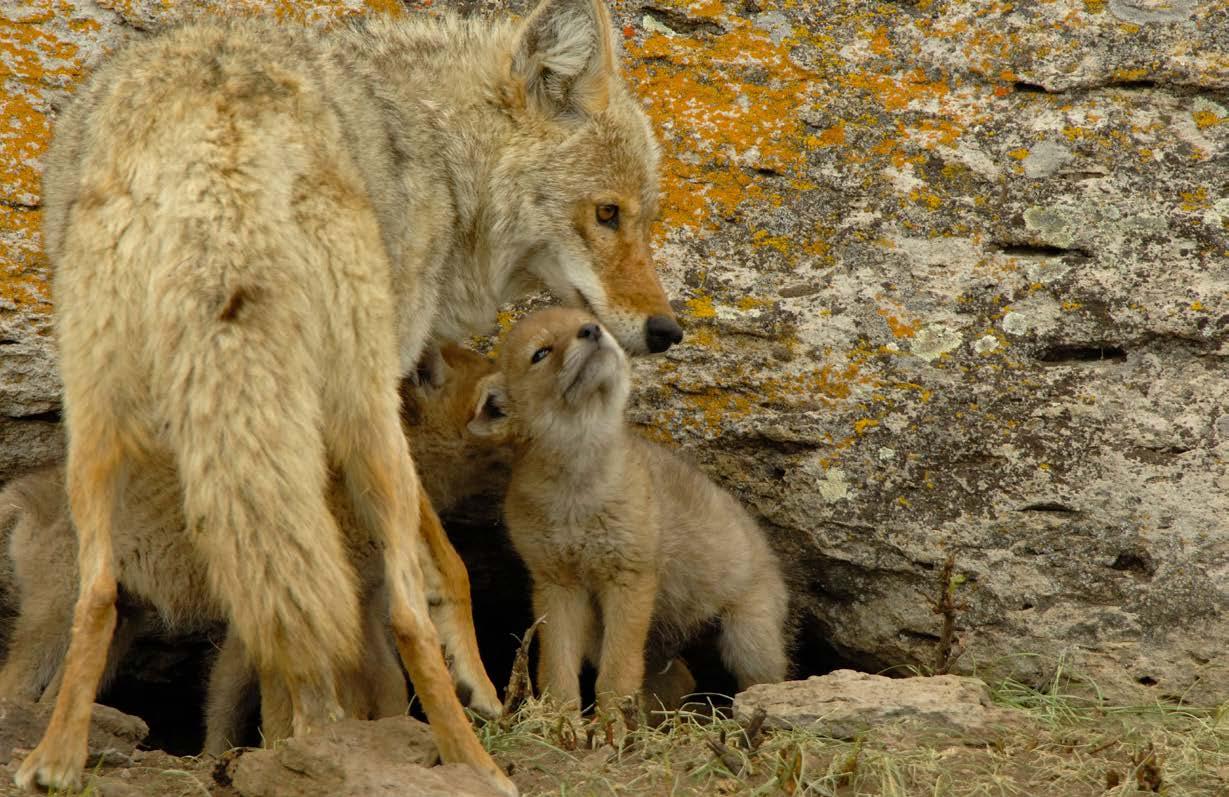
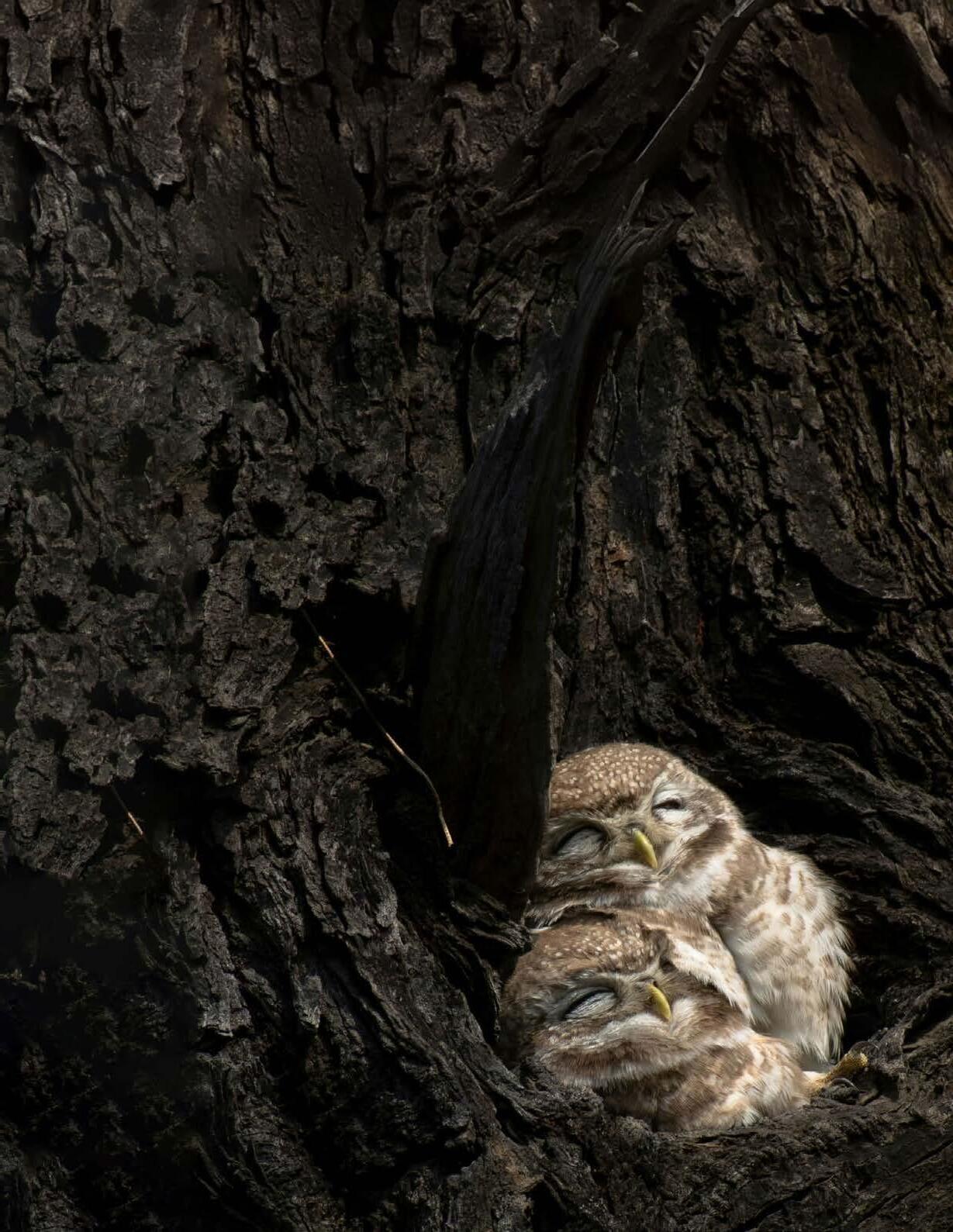
Rodenticides are designed to be appealing and toxic to rodents, but they can also indirectly harm or kill other animals in the ecosystem. When rodents consume the poison, wild carnivores may eat them, causing secondary poisoning. Mounting scientific studies provide evidence that significant numbers of large wild carnivores, including coyotes, bobcats and wolves, are exposed to harmful anticoagulant rodenticides in addition to raptors, owls and other birds of prey. Rodenticide poisoning can compromise the immune system of carnivores, making them more susceptible to diseases like mange, and even causing death. Fortunately, there are a number of safe, environmentally friendly alternatives to mitigate rodent conflict. Here are a few ways to keep your space free of rodents without using poison:
• Seal entry points—cabinets, attics, basements, and crawl spaces—to prevent rodent access.
• Secure potential food sources in your yard, such as birdseed, pet food, trash, and compost piles.
• Attract natural rodent predators like raptors by providing nest boxes, planting trees, and maintaining dead trees. Owls alone can consume thousands of mice and rats annually!
• Use botanical rodent repellents like Fresh Cab in rodent-prone areas. These plant-based products effectively repel rodents without harming other wildlife.
• Avoid using glue traps. They are indiscriminate and inhumane.
• Don’t plant ivy — it provides shelter and a food source for rodents: snails and slugs. Ivy on walls can form “rat ladders” to windows, attics and other interior spaces.
• Keep compost and wood piles as far away from structures as possible.
• Facilitate natural rodent control by coexisting with your wild neighbors.
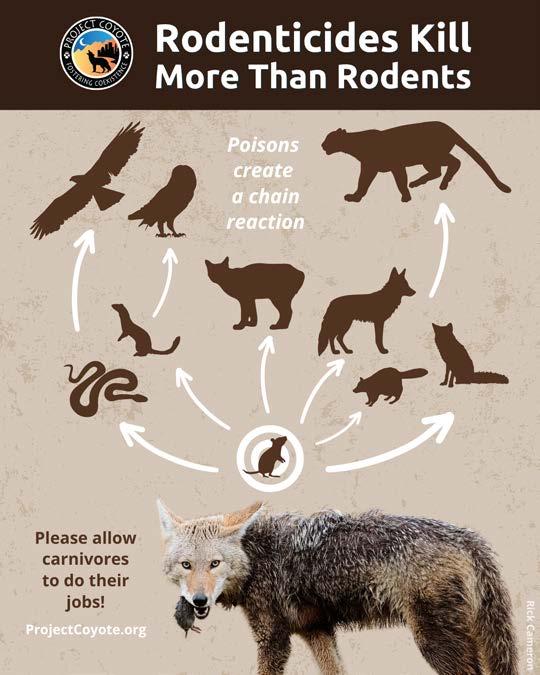
Significant numbers of large wild carnivores, including coyotes, bobcats and wolves, are exposed to harmful anticoagulant rodenticides in addition to raptors, owls and other birds of prey.
Project Coyote collaborates with artists and educators to raise awareness about and appreciation for wild carnivores, including their importance to ecosystem health, and ways to live peacefully alongside wildlife.

©
On May 21, Project Coyote celebrated 16 years of dedication to its mission: protecting wild carnivores for their intrinsic and ecological value, and promoting compassionate coexistence across the country. What started as a small organization based in Marin County, California, with one staff member and a handful of dedicated volunteers, has grown to encompass staff, volunteers, and initiatives across the country at the state and federal levels. This achievement has only been possible with the steadfast support of like-minded wildlife advocates, coalition partners, foundations, and donors. To thank all of our amazing supporters and community members, our celebration included a Zoom event in which we shared some of the exciting programs
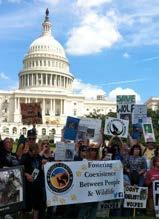
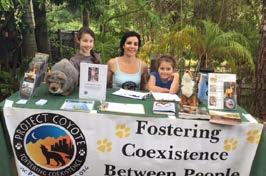
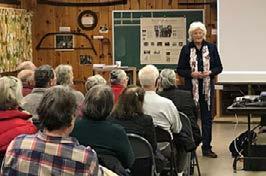
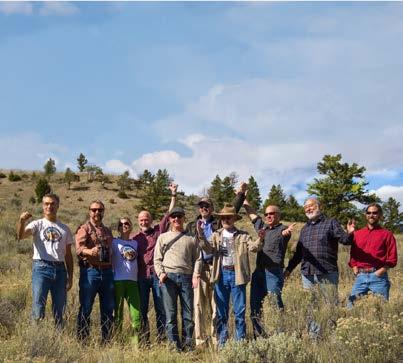
we are looking forward to in the coming year, and introduced a few of our national staff, our newest State Representatives, and one of our #CaptureCoexistence Contributors. If you missed it, the recording can be found on our YouTube channel
We also interviewed Project Coyote’s Founder & Executive Director, Camilla Fox, about her inspiration for founding this organization, some of Project Coyote’s achievements and challenges over the last 16 years, and what keeps her motivated to continue the often difficult work of wild carnivore advocacy. Join us in celebrating our 16th anniversary milestone by reading Camilla’s interview here to learn more about Project Coyote’s history.
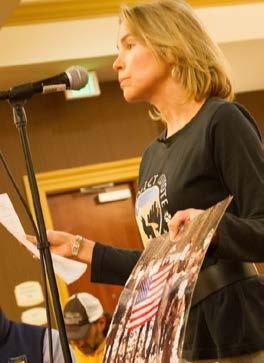



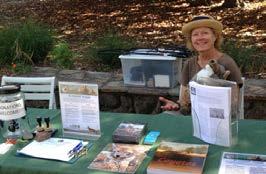
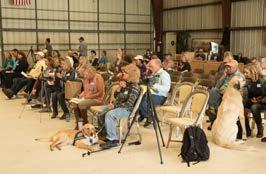
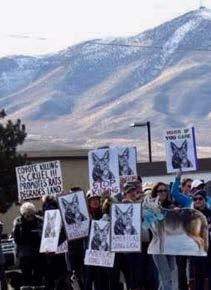

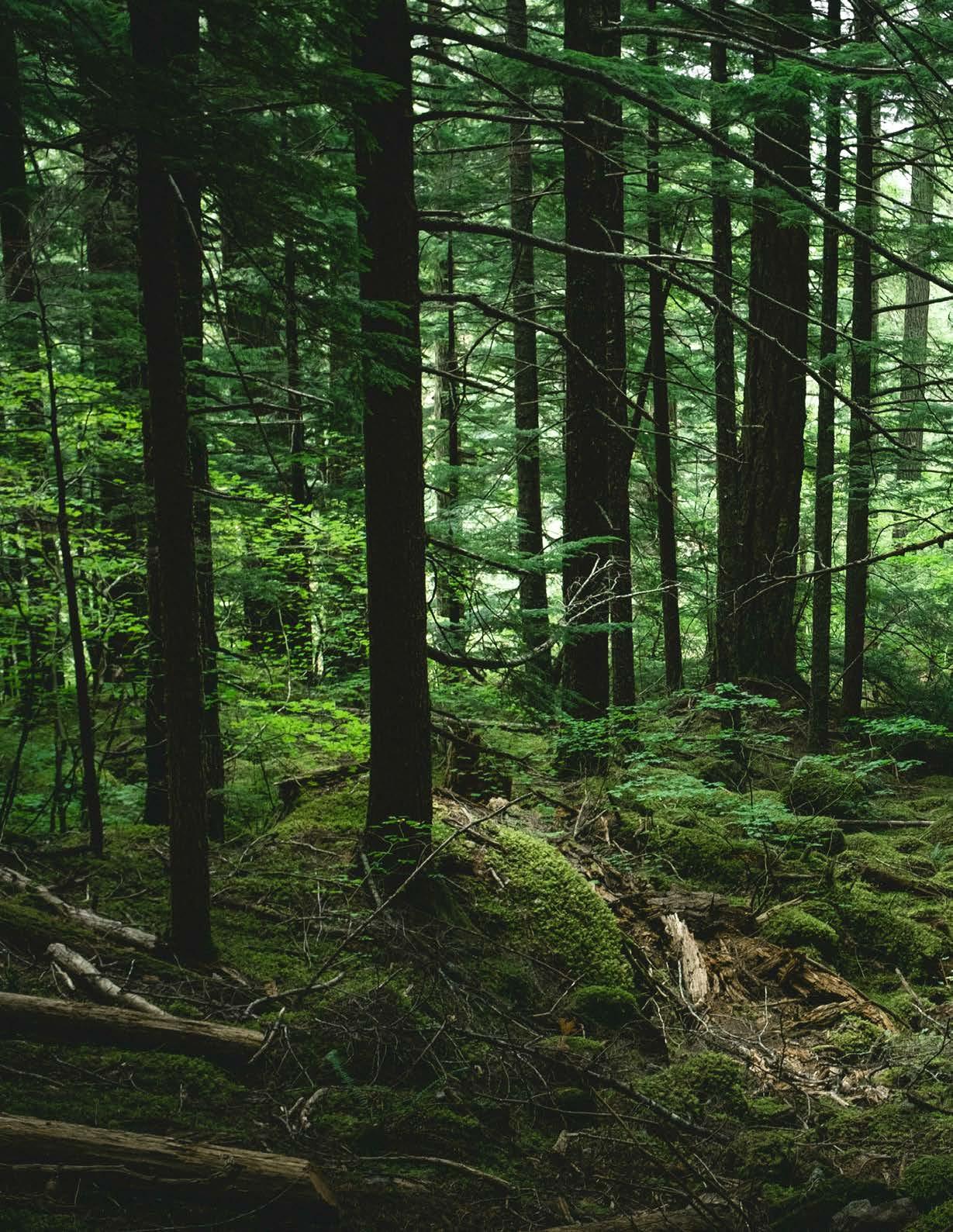
Welcoming our Newest Artist for Wild Nature Ambassador:
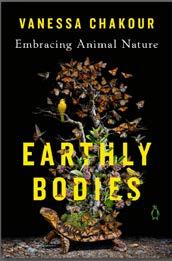

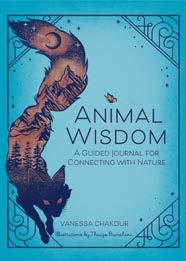
Author and rewilding instructor
Vanessa Chakour has long recognized the significance of storytelling to inspire appreciation for our wild kin.
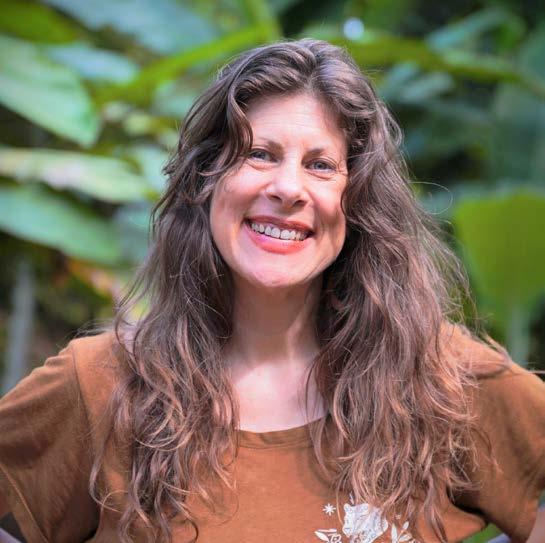
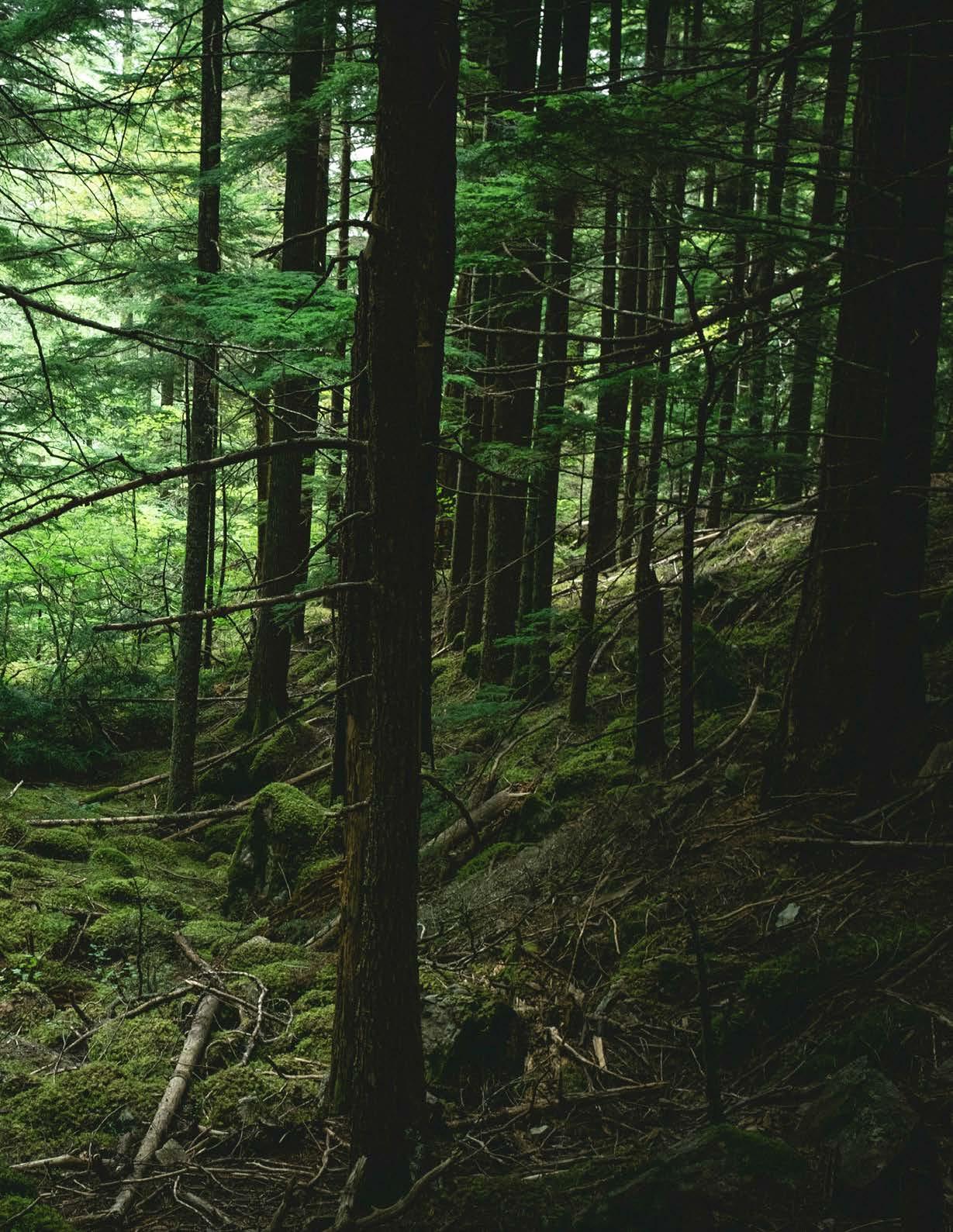
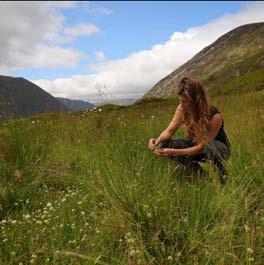
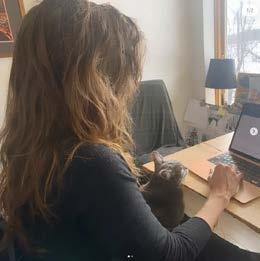
In preparation for re-launching our Artists for Wild Nature program with new resources and pathways to get involved, we welcomed author, naturalist, visual artist, former pro-boxer, herbalist, and nature advocate Vanessa Chakour as an Ambassador for this program. Vanessa is the author of Awakening Artemis and the soon-to-be released Earthly Bodies . She manages Mount Owen Forest Sanctuary with her partner, and leads writing and outdoor education workshops to strengthen human connections with nature. Her steadfast work on behalf of wolves and other persecuted and dismissed members of our multi-species communities led to conversations with the Project Coyote team about collaborations for wild nature.
Vanessa has stepped up in full force to support our mission. Her recent Notes From The Field blog, Creating Corridors: How Storytelling Fosters Empathy for Wild Kin , provides our community
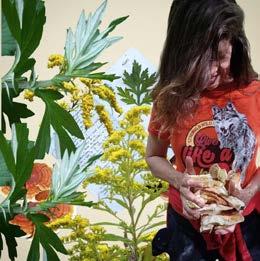

with writing exercises and prompts for successful storytelling to ignite change and foster empathy for our wild neighbors. She will also be our guest speaker for “coffee conversations” in the August Coyote Collective eNewsletter ( join today so you don’t miss this!) and will be discussing her new book Earthly Bodies with Project Coyote’s Founder & Executive Director Camilla Fox in our August 20th webinar (register here). Finally, Vanessa is hosting a virtual Writing for The Wild seminar and workshop series to benefit Project Coyote (50% of proceeds will be donated to our work for wild carnivores!) and help writers develop their creative voice and advocate for our animal kin. Writing prompts, readings, discussion, and outdoor activities between sessions will help participants foster healing through the creative process and equip writers with tools to craft compelling stories on behalf of our wild relatives. Learn more and register here .

Longtime Project Coyote volunteer Chris Schadler has been a voice for wolves and eastern coyotes for decades—as an advocate, lecturer, sheep farmer, and wild canid ecologist (learn more about her journey here). Chris’s engaging and knowledgeable presentations on the eastern coyote have earned her a strong reputation across New England, where she is a frequently requested speaker. She also serves as Project Coyote’s New Hampshire State Representative, is a member of the Northeast Wolf Coalition and co-founded the New Hampshire Wildlife Coalition which advocates for predators. Project Coyote’s recent film, Ecosystem Allies, features Chris discussing the importance of wild carnivores to New England ecosystems. We recently spoke with Chris about her connection with coyotes, and how it has impacted her life’s work.
What motivates you to participate in wild canid advocacy and education efforts?
My motivation has always been my admiration for the coyote and the abhorrent way this beautiful creature has been treated in the name of ‘management’. Both coyotes and wolves bear the burden of our ignorance and fear, but I am an eternally optimistic person. I believe, ferociously, that as advocacy grows, things must and will change for these animals.
When I moved to New Hampshire, I arrived bearing sheep and bought a farm that had been troubled by coyotes. I was aware of our large Eastern coyotes but had never seen one. One evening around eight o’clock, I hopped on my bike, and was riding through farmland and perhaps 100 feet in front of me, a large, rangy coyote loped rather beautifully across the road. The coyote glanced over at me and had just moved into some brush. I got there as fast as I could, hopped off my bike, and laid down on the ground with the coyote about 20 feet away. I began whimpering (because dogs, wild or not, can’t resist the sound of pups). The sound stopped him and in his curiosity he turned and regarded me with huge ears cocked. I had maybe 10 seconds to take him in — ears to tail — before he casually trotted off. I had never thrown myself at an animal before but what a moment!
How did becoming a sheep farmer influence your relationship with coyotes?
I never intended to have sheep, but somebody gave me a Border Collie and I needed to give that dog a job. He was a brilliant herding dog. So with the help of a neighbor’s ram, I soon had 20 sheep and the makings of my long term coexistence experiment. The guy who had the farm prior had lost lambs every year (due to poor management), so I knew the local coyote gang had developed a hankering for sheep and I was determined to deter them. I knew facts about coyotes, but it wasn’t until I lived alongside them that I really cut my teeth on what it meant to farm in New England and coexist with coyotes.
I understood that their average lifespan in the wild is about five years, so I figured that if I kept coyotes off my sheep for 4-5 years, the new generation would likely have been raised on natural prey, which was abundant
in our area. As the new pups grew, I watched them in my field eating what they ought to be eating. So using my knowledge of their life cycle helped me and my sheep get along perfectly fine with them. That began quite a long relationship between me and sheep and coyotes. I think that doing that has given me more credibility than a degree in conservation biology! As a former sheep farmer, I have been able to talk to a lot of farmers. And that’s huge. I’m grateful to the guy who threw a border collie in my lap. It led me to sheep, which led me to understanding coyotes far more deeply than I ever would have been able to otherwise. I should also add that as my understanding of eastern coyote ecology deepened, my appreciation of them grew. Most conduct their lives with family, and one experience really reinforced this for me. A couple contacted me about a coyote in their field who wouldn’t stop barking (for hours). They asked if I could “come over and make it stop.” It was winter and cold and as soon as we stepped out into their backyard, an old airfield, I heard and saw the coyote — no yips or howling — just bark, bark, bark, etc.
We approached the coyote and it reluctantly moved off. Looking around I finally saw another coyote, trapped, and with the chain wrapped around the base of a tree. We could release it because the landowner had not given his permission to trap any wildlife. We successfully did release it and both coyotes vanished into the woods. I was struck by this behavior: Why was the coyote barking? It wasn’t alarm-type barking, just the kind of barking your dog would do to get back into the house. It may have been a mated pair or siblings and one sensed the peril of the other. I can’t imagine they felt humans could be helpful. It’s been years and I have no answer but think often of the strength of family when you need help.
What accomplishments are you most proud of in your efforts to protect wild canids?
I am a conservation teacher by trade, having taught literally thousands of college aged and graduate students in my life. I ended each semester with a memorized recitation of ‘Thinking Like a Mountain’ because ultimately, it was Leopold’s willingness to think differently about his own deeply held biases
that enabled him to move forward, to progress and change his worldview about humanity’s role in managing nature. Many of my students got the message. I was a wolf advocate before making the leap to the eastern coyote; people here in the east are more receptive to wolves than to coyotes, probably because we don’t have wolves here. But because this hybrid of wolf and coyote is wolf-like, ironically, people are more interested these days!
I also have a reasonably good relationship with the NH Fish and Game wildlife division. I worked to create personal relationships with several of them and I’m proud of the fact that they respect me and the work of Project Coyote. I’ve established a credible reputation in the region which enables me to reach a variety of audiences including the farming community.
What do you feel are some of the most pressing changes that need to happen to ensure wild canids are protected into the future?
If we can get to the point where people can simply accept the coyote, we will have won a huge victory — not just for the coyote, but for all of the wild furbearers. The coyote seems to be the one animal that’s easy to hate. Forty years ago when I began my advocacy, hunters willingly believed that coyotes would wipe out the deer herd, eat our young, carry diseases which would kill us and other fabrications. Over time, these untruths have been disproven. Changes in elementary and secondary curriculums in public schools now include a more informed, realistic and humane view of wild creatures. An enlightened public is the greatest bulwark against ignorance and fear.
However, I think the most pressing change to ensure better protection for canids must be a revamping of the governance structure in the state agencies governing wildlife management.
As long as Fish and Game Commissions and Boards consist solely of hunters, trappers and anglers, the future is bleak for wild canids. Change must come in the form of opening F&G Commission participation to any conservation-minded citizen. If 3% of people here in NH hold hunting licenses, should only those 3% have a say in how wildlife is managed?
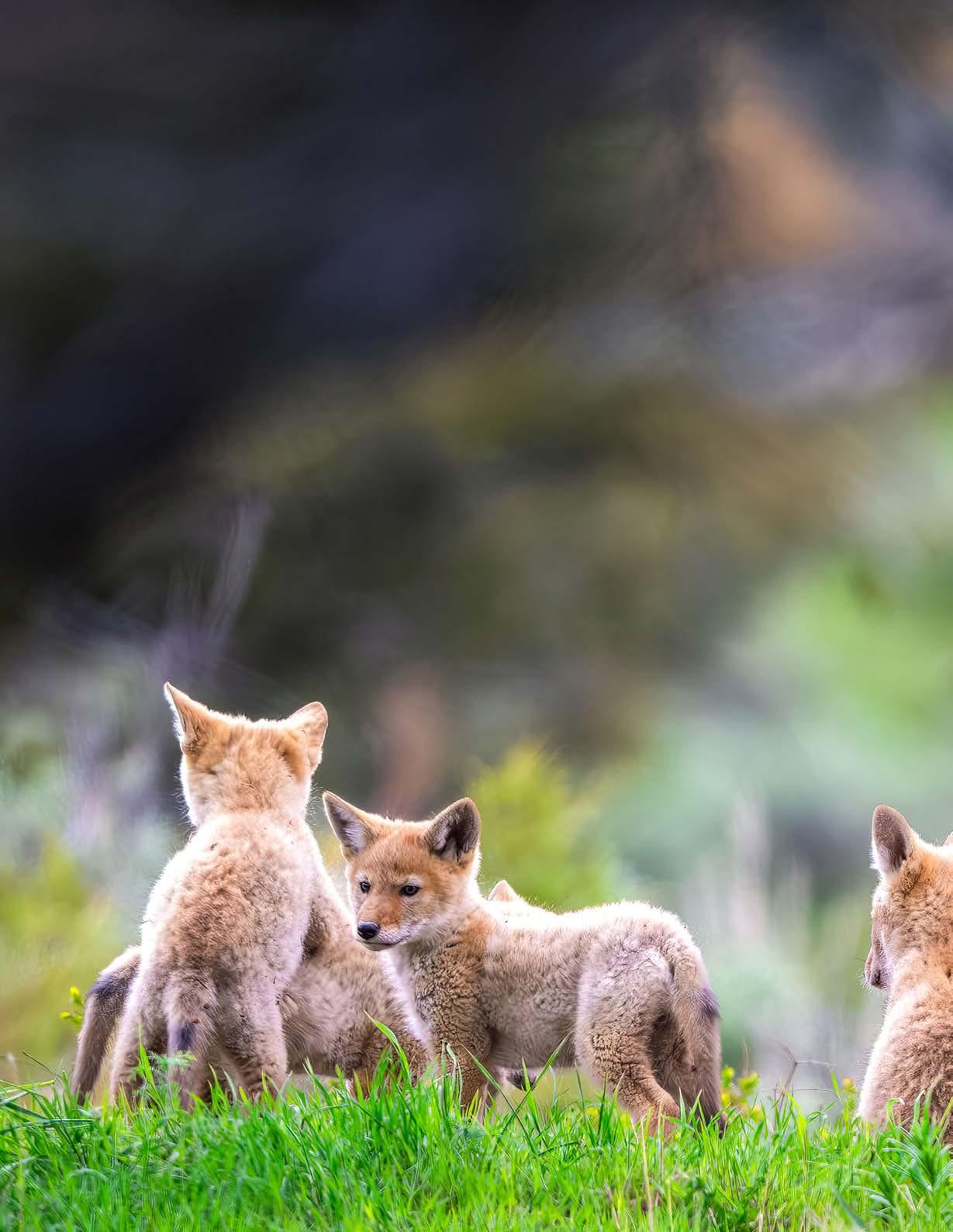
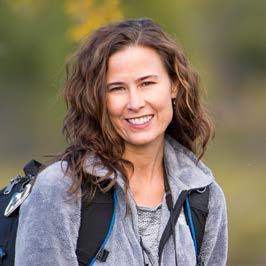
Project Coyote is thrilled to welcome Karin Saucedo to our team as our new Texas State Coordinator. She will work to establish collaborative relationships, partnerships, and coalitions in Texas to expand our core programs and campaigns. Through education and public outreach, Karin aims to shift perceptions of wild carnivores towards positive and compassionate coexistence. Karin is a wildlife photographer who has been involved in animal rescue, rehabilitation, outreach and advocacy for over a decade.
Among her many roles, Karin sits on the Advisory Committee for Texas Native Cats, is a Senior Volunteer at In-Sync Exotics, and the Texas Outreach Representative for The Canid Project. Karin also cofounded Song Dog Watch, an organization in the Dallas/Fort Worth metroplex where she and her husband help local communities understand coyote behavior and how to coexist safely with them. They collaborate with wildlife rescues and municipalities in North Texas, providing support and expertise on issues involving coyotes, foxes and bobcats.
Please join us in welcoming Karin to our growing pack of talented, passionate, and dedicated carnivore advocates across the country!

Maddy Garcia : Policy Intern Maddy aims to apply the skills she has gained in the classroom and deepen her commitment to conservation. Her collegiate and professional experiences have taught her the value of integrating science, policy, and technology to drive positive change.
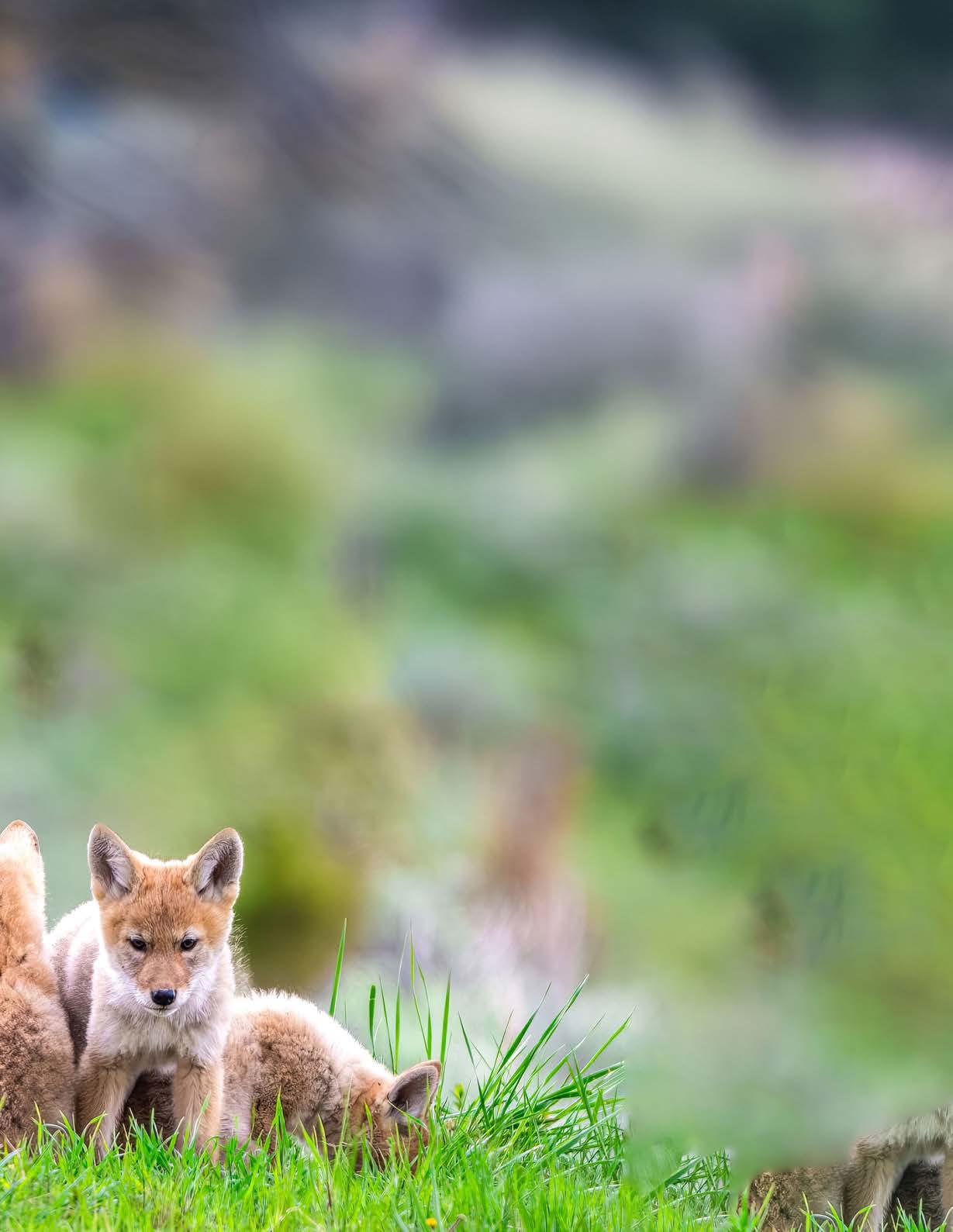
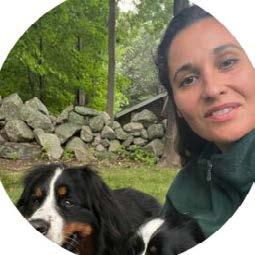
Rachel Giglio : Coexistence Intern Rachel plans to lead with compassion to advocate for animal voices and support holistic, communityled strategies that ensure the longterm survival of wild carnivores. She aims to bridge gaps between management practices and community perspectives.

Riley Haythorn: Communications Intern Riley hopes to increase exposure to Project Coyote’s mission of promoting compassionate coexistence with North America’s wild carnivores and further engage the public in wildlife conservation through innovative communications.
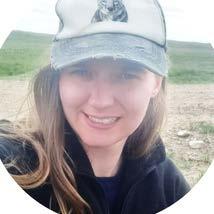
Shayla Jackson: Research Intern Shayla will help advance Project Coyote’s goal of prohibiting trapping for recreational and commercial purposes by compiling peerreviewed literature on trapping practices.


The Coyote Collective members receive monthly screensavers featuring images from our talented #CaptureCoexistence Contributors.
We are excited to share the wildly successful launch of our new monthly giving program, The Coyote Collective. A generous supporter pledged to donate $10,000 if we reached 100 members in the first month and we ended up surpassing that number within two weeks! Between our newest monthly supporters and our previous recurring donors, nearly 300 wildlife advocates form The Coyote Collective. This ongoing support and commitment to our shared mission amplifies our work, and we are incredibly grateful to each member of this dedicated community.
Joining The Coyote Collective is a way for anyone, regardless of donation size (supporters can join for as little as $3 a month—less than the price of a coffee) to make a difference in the carnivore conservation space. We are excited to continue encouraging new, younger wildlife advocates to join this community, because lots of small acts of generosity collectively create an enormous impact. Membership comes with some wildly fun perks, like monthly screensavers for mobile and desktop, exclusive video interviews, and program spotlights to highlight the impact The Coyote Collective is making for wild carnivores.
Project Coyote would also love to give a shoutout to Dan Elster, wildlife photographer and owner of Big Picture Greetings. He created a special edition wild carnivore greeting card set, exclusive to his April Allies initiative, to raise critical funds for Project Coyote to protect the coyotes, black bears, bobcats, and foxes featured on the cards. Thank you, Dan!
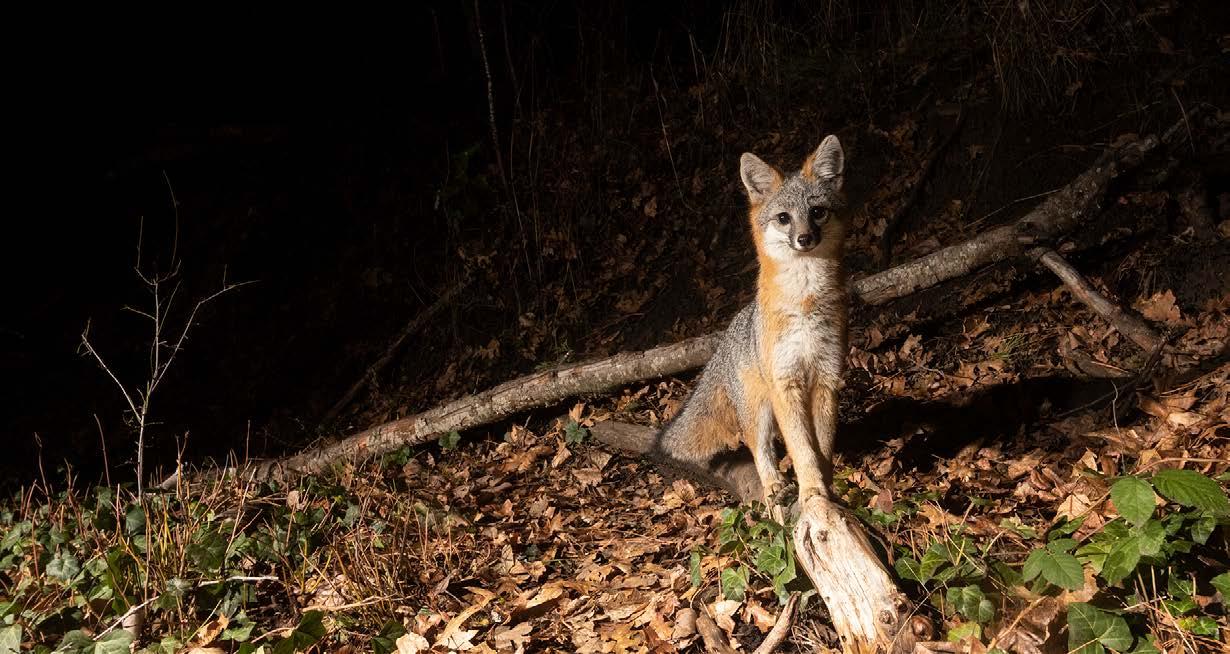
August is National Make-A-Will-Month, a perfect time to consider the legacy you’ll be leaving for the future of our planet. We will be sharing more information throughout August on how to create a legacy gift for Project Coyote and other nonprofits you care about through FreeWill. We have partnered with this amazing platform to allow our dedicated pack of supporters to create a will or trust for free! Making a Legacy Gift to Project Coyote is one of the most significant ways to sustain our mission, helping us create a more compassionate world for generations of wildlife and humans to come. If you have questions about legacy giving, we encourage you to reach out to our Development Operations Coordinator, Cassidy Zehnder: czehnder@projectcoyote.org
Project Coyote volunteer Rob Ruiz represented Project Coyote at the Point Reyes Birding & Nature Festival Family Day on April 21, 2024.
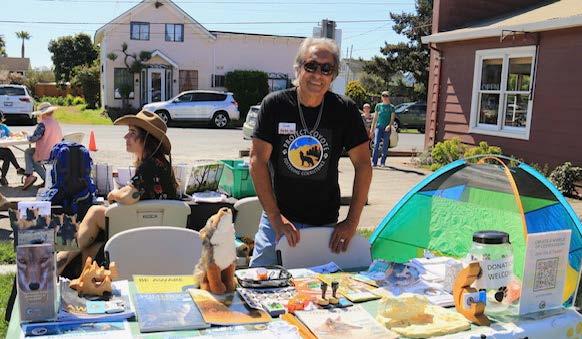
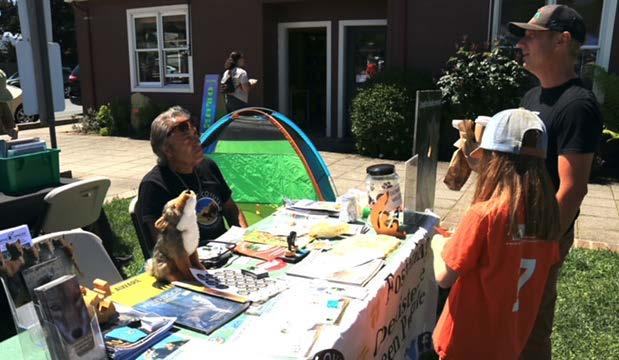
Project Coyote Outreach
Program Coordinator Sarah Killingsworth and Project Coyote Ambassador Daniel Dietrich participated in the Puma Conservation Conversation at the Oakland Zoo on behalf of Project Coyote on July 11, 2024.
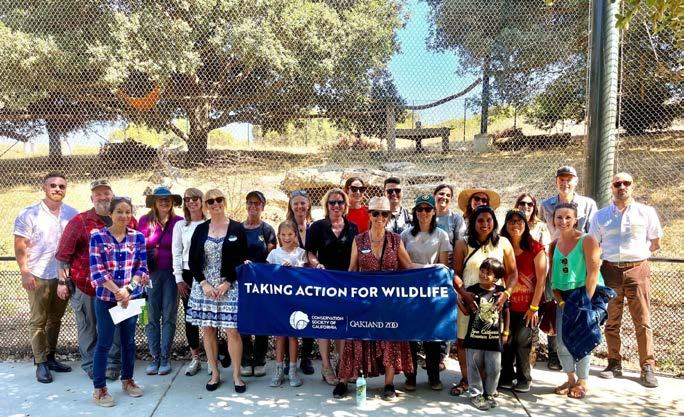
In June, Suparna Vashisht, a member of Project Coyote’s Advisory Board, was a guest on the highly-rated podcast Girl, Take the Lead. In Episode 169, “Creating Pathways to Sustainability, Conservation, Gender Equality and Mental Wellbeing,” Suparna discusses her journey from the corporate world to the conservation non-profit world, and all the ways each of us can be an advocate for what is important to us. Suparna has been a supporter of Project Coyote for more than a decade, and we are honored that she has dedicated so much of her time and energy to strengthening our organization.


• Animal Welfare, Conservation Groups Announce Intent to Sue in Wake of Wolf’s Killing In Wyoming. Cheyenne Post. April 25, 2024
• New Billboard in New Mexico Promotes $105K Reward for Information About Illegal Mexican Gray Wolf Killing. EIN Presswire. May 1, 2024
• Measure banning wildlife hunt contests passes Illinois House. The Center Square. May 15, 2024
• New Bill To Ban Wildlife Killing Contests On U.S. Public Lands Has Been Introduced By The House Of Representatives. World Animal News. May 23, 2024
• Groups sue to restore endangered species protection for US northern Rockies wolves Associated Press. July 10, 2024
• As private interests turn profits on public lands, wildlife and taxpayers pay the price. Columbia Insight. July 11, 2024
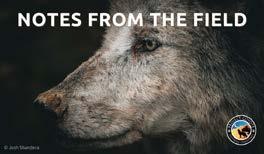
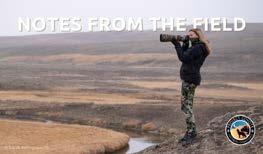
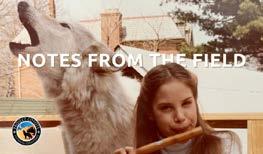

Additional Publications, Presentations, & Press:


Sarah Gorsline
Meet Sarah Gorsline, Film Editor for The Third Harmony — The Metta Center for Nonviolence
Sarah Killingsworth
“Coyotes and Coexistence.”
San Francisco Animal Commission meeting, May 9th, 2024
“Sharing Space with Wild Carnivores.” Presentation for Marin County Parks at Ring Mountain Open Space Preserve, Marin County, CA. July 14, 2024

Persecution, torture and senseless death: the grim reality of being a wild carnivore in the US, by Francisco Santiago-Ávila
Project Coyote Celebrates the Impact of Imagery on Nature Photography Day, featuring Capture Coexistence Contributors
16th Anniversary
Interview with Founder & Executive Director Camilla Fox
The Intersection of Science and Values in Fish and Wildlife Policymaking” (panel),
“Ending the War on Carnivores” (panel), “Coyote Roundtable” (workshop), Washington Fish & Wildlife Reform Convention, Washington Wildlife First. April 8-9, 2024.
“Protecting wild animals and nature through ethics, science and outreach.” Wisconsin Wildlife Day, Madison, WI. April 18, 2024.
“Multispecies Justice for Wolves.” Virtual Guest Lecture for Canisius College Anthrozoology Graduate Program. April 19, 2024.

Creating Corridors: How Storytelling Fosters Empathy for Wild Kin, by Vanessa Chakour
Chris Schadler
“Becoming Wolf: Eastern Coyotes in New Hampshire”. Presentations on April 11 at Silsby Public Library, April 24 at New Castle Library, May 15 at Deerfield Public Library; May 21 at Tilton Senior Center
“The return of the wolf: Are we ready for wolf recovery in New Hampshire?”
Presentations on April 18 at Hertzler Library, Jefferson, NH, April 18th, and on April 30 at Pelham Public Library
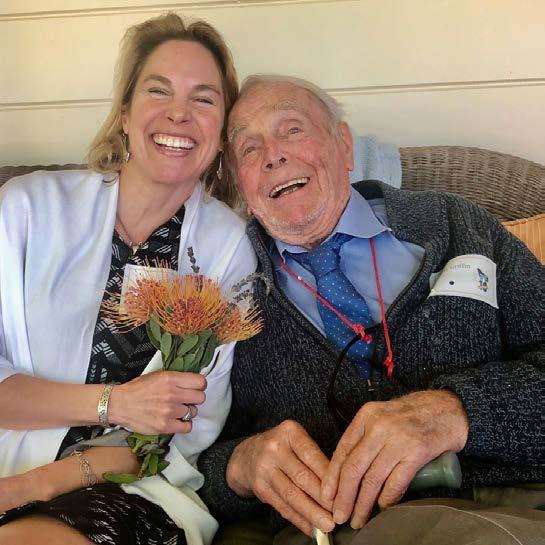
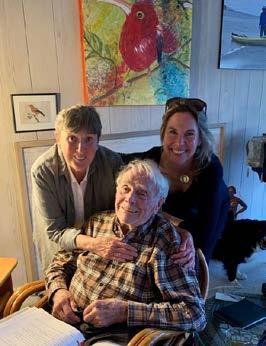
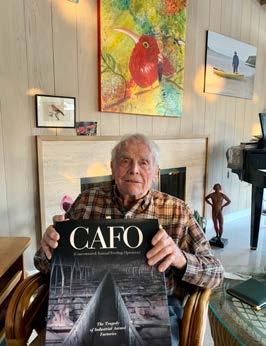
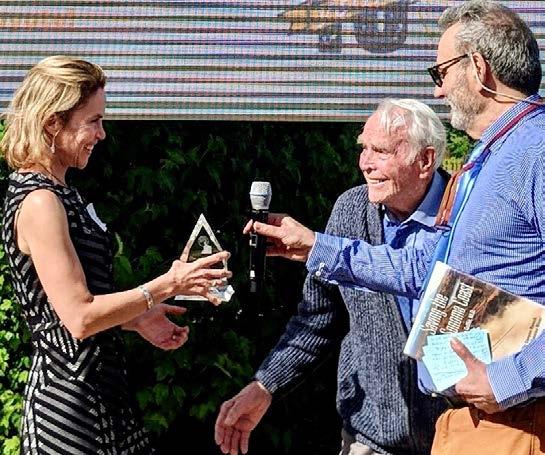
“Do Something, Say Something, Write Something”
It is with great sadness that we share the passing of Marty Griffin (Dr. L. Martin “Marty” Griffin – July 23, 1920 – May 22, 2024) a larger than life hero for wildlife and wildlands. As many of our long-term supporters know, Marty served as a Project Coyote Ambassador for close to a decade — using his voice to advocate for coyotes and other persecuted wild animals, as well as for the preservation of wildlife habitat throughout the North Bay region of California and beyond. His legacy is long and deep; his accomplishments, extraordinary; his dedication to making this world a better place for humans and non-human animals, exceptional. It would take a book to share all of Marty’s remarkable achievements over his 103 years on this earth (many of these are recounted in his memoir: Saving the MarinSonoma Coast, in which he describes the successful grassroots efforts to save the San Francisco Bay and Northern California coast from the overdevelopment that devastated Southern California’s coastline). His accomplishments and conservation leadership were also featured in the documentary film Rebels For a Cause Marty received numerous awards for his accomplishments, and in 2019, at Project Coyote’s 10-year gala in Sonoma County, we honored him with our Force for Wild Nature Award.
As part of this award we produced a short video about Marty, his reasons for becoming a Project Coyote Ambassador, and his many accomplishments protecting wild nature. My favorite line in this video ~ when Marty says: “Do something, say something, write something… That’s what I’ve always tried to do.”
Read More
